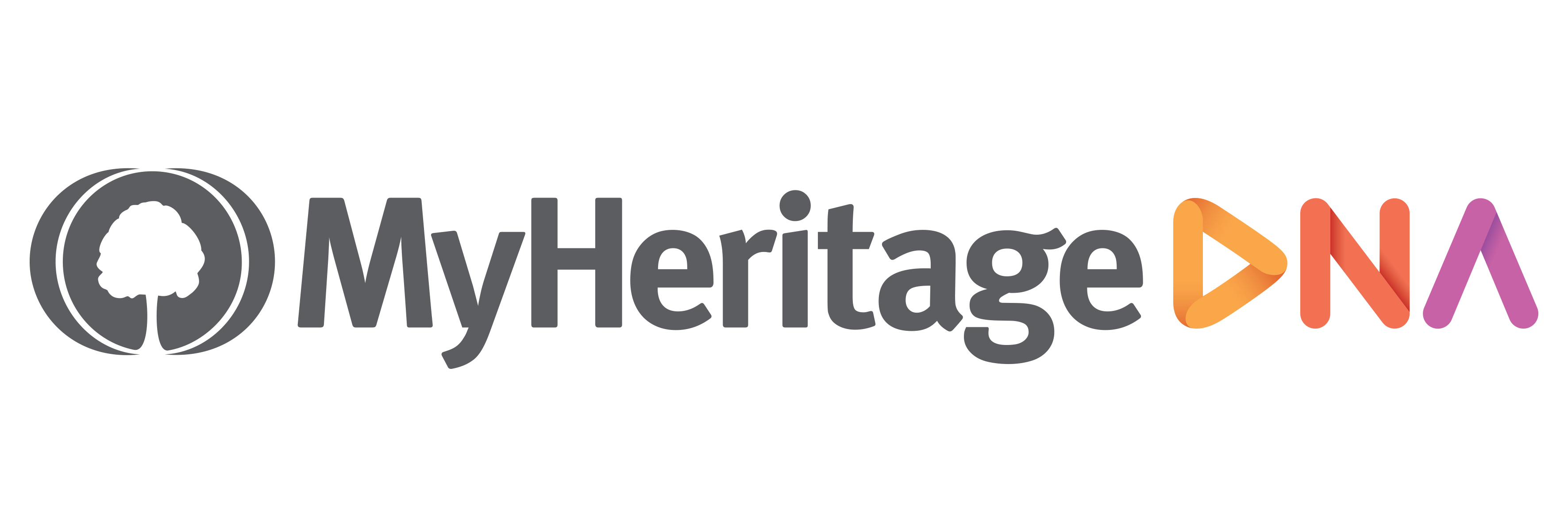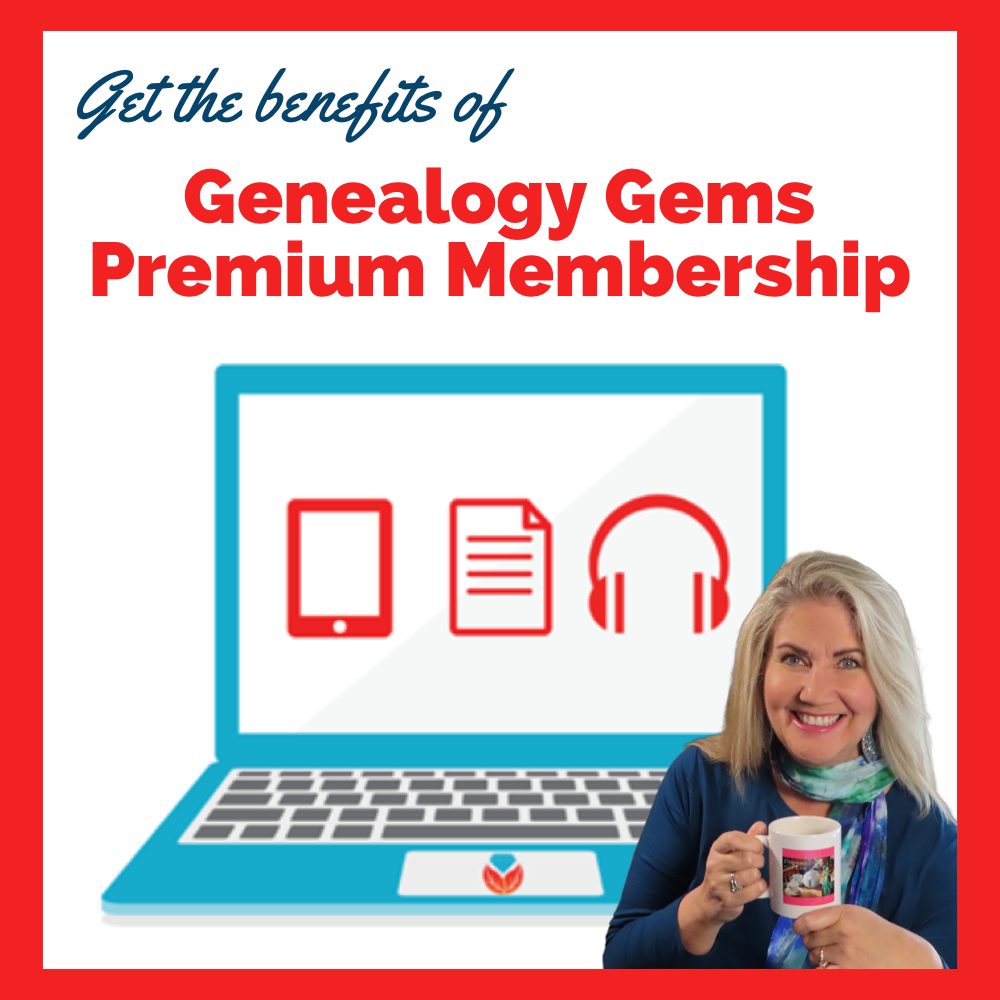Genealogy Gems Podcast Episode 261
Show Notes: 10 Top Tips for German Research
Researching ancestors in another country can be a little daunting. Challenges include foreign languages, moving boundaries, and spelling variations. This is certainly true for German genealogy.If you’re new to German genealogy or your research has stalled, this episode is for you. In fact, even if you don’t have German ancestors I think you will still find the principles and ideas covered very helpful.
Translator, author and German handwriting expert Katherine Schober shares her 10 Top Tips for Beginning Germany Genealogy. These tips are packed with tools and resources that you can start using right away.
Katherine Schober is a German / English translator, specializing in the old German handwriting. She is the author of “The Magic of German Church Records” and “Tips and Tricks of Deciphering German Handwriting”, as well as the creator of the online course “Reading the Old German Handwriting.”
Thanks to our special sponsor: Get 20% off Newspapers.com. Click here and use coupon code genealogygems
Listen to Genealogy Gems Podcast Episode 261
Watch the Original Video & Get the Show Notes
Elevenses with Lisa episode 52 show notes page.
Our Sponsors:
MyHeritage: Click here to start finding your family history at MyHeritage
Newspapers.com
Become a Genealogy Gems Premium Member
Premium Members have exclusive access to:
- Video classes and downloadable handouts
- The Genealogy Gems Premium Podcast
- Downloadable ad-free show notes PDF handouts
Become a member here.
Genealogy Gems Podcast App
Don’t miss the Bonus audio for this episode. In the app, tap the gift box icon just under the media player. Get the app here.
Get the Free Genealogy Gems Newsletter
The Genealogy Gems email newsletter is the best way to stay informed about what’s available with your Premium eLearning Membership. Sign up today here.
Follow Lisa and Genealogy Gems on Social Media:
Sanborn Maps and Other U.S. Resources: New Genealogy Records Online
Thousands of Sanborn Fire Insurance maps and a national Civil War burial database are among new genealogy records online. Also: newspapers in Florida, Hawaii, Illinois, Louisiana, and Pennsylvania; vital records for Idaho, Utah, and Washington; Catholic parish records for the Archdiocese of Boston; Maine cemetery plans; New Hampshire Civil War records and New York passenger arrivals.
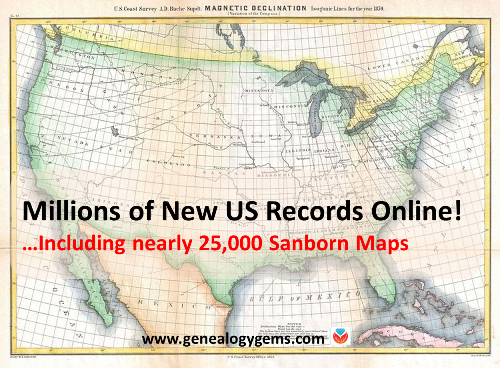
Breaking news! The Library of Congress has put online nearly 25,000 additional Sanborn Fire Insurance Maps–and more are coming! Over the next three years, more will be added monthly until all 50 states are covered from the 1880s through the 1960s.
Sanborn maps show detailed information about neighborhoods, buildings, roads and more for thousands of towns in the U.S. and beyond. A sizable collection of pre-1900 Sanborn maps are already online at the Library of Congress (use the above link). Watch the short video below to learn more about them. The full-length class is available to Genealogy Gems Premium Members.
Civil War burials. Ancestry.com’s new database, U.S., Civil War Roll of Honor, 1861-1865, lists over 203,000 deceased Civil War soldiers interred in U.S. cemeteries. “Records in this database are organized first by volume and then by burial place,” says the collection description. Entries “may contain the name of soldier, age, death date, burial place, cemetery, rank and regiment.”
Newspapers. We’ve noticed the following new digital newspaper content online recently:
- Florida, Illinois, Pennsylvania: Newspapers.com recently added or updated newspaper content for the following newspapers (with coverage shown): Chicago Tribune (1849-2016), Fort Lauderdale News (1911-1991), South Florida Sun Sentinel (1981-2017) and the Morning Call [Allentown, PA] (1895-2017). (With a Newspapers.com Basic subscription, you can see issues through 1922; a Publisher Extra subscription is required to access issues from 1923 onward.)
- Hawaii: Newspaper content has been recently added to the Papakilo Database, an online archive of The Office of Hawaiian Affairs. The collection currently contains nearly 12,000 issues from 48 different publications, with a total of 379,918 articles. Coverage spans from 1834 to 1980.
- Louisiana: A New Orleans feminist newspaper is now available online at Tulane University’s digital library. An online description says: “Distaff was the first and only feminist newspaper published in New Orleans….Distaff served as a forum for women’s voices in politics, activism, and the arts….A preview issue was published in 1973 and the newspaper continued to be published until 1982. There was a hiatus in publication from 1976-1978.”
State by state:
Idaho vital records. New for Ancestry.com users are two Idaho vital records databases, Idaho, Death Records, 1890-1966 and an Idaho, Divorce Index, 1947-1966. A companion Ancestry.com database, Idaho, Birth Index, 1861-1916, Stillbirth Index, 1905-1966, was recently updated.
Maine cemetery plans. “Many Maine cemeteries have plans originally created courtesy of the Works Progress Administration, which reside at the Maine State Archives,” states a recent post at Emily’s Genealogy Blog at the Bangor Daily News website. The post advises us that all of them–nearly 550–are now viewable online at DigitalMaine.com (search for WPA cemetery plans). “These plans are great for locating veterans; some graves are coded by the war of service,” advises the post. “With such an item in hand one could also visit the appropriate town clerk and locate a civilian’s burial as well, I should think.” Thanks for that tip, Emily!
Massachusetts Catholic church records. The New England Historic Genealogical Society (AmericanAncestors.org) has added 13 new volumes to its browse-only collection, Massachusetts Roman Catholic Archdiocese of Boston Records, 1789-1900. “This addition, drawn from the collections of St. James the Greater in modern-day Chinatown, includes the largest volume we’ve scanned yet–1,035 pages,” says an NEHGS announcement. The collection description states that an index is being created and will be available to site members in the future.
New Hampshire Civil War records. The free site FamilySearch.org has added about 25,000 indexed names to its collection of New Hampshire, Civil War Service and Pension Records, 1861-1866. The collection contains an “index and images of Civil War enlistment papers, muster in and out rolls of New Hampshire Regiments and pension records acquired from the New Hampshire state archives.”
New York passenger lists. FamilySearch.org has added nearly 1.2 million indexed names to the database, New York Book Indexes to Passenger Lists, 1906-1942. According to the collection description, names are taken from “books of indexes to passenger manifests for the port of New York. The indexes are grouped by shipping line and arranged chronologically by date of arrival.”
Utah birth certificates. Nearly 33,000 names have been added to an existing FamilySearch database, Utah, Birth Certificates, 1903-1914. “This collection consists of an index and images to birth certificates acquired from the Utah State Archives,” says the site. “The records are arranged by year, county, and month within a numerical arrangement by box and folder number. Many of these volumes have indexes at the beginning or end.”
Washington vital records. Ancestry.com subscribers with relatively recent roots in Washington can check out two new databases relating to marriage: Washington, State Marriage Indexes, 1969-2014 and Washington, Divorce Index, 1969-2014.
 Sanborn maps are a rich resource for genealogy–but they’re just one kind of map that can lead to genealogical gems! Lisa Louise Cooke teaches tons of strategies for using maps to chart your family history in her Genealogy Gems Premium video series. Discover these for yourself with a Genealogy Gems Premium website membership.
Sanborn maps are a rich resource for genealogy–but they’re just one kind of map that can lead to genealogical gems! Lisa Louise Cooke teaches tons of strategies for using maps to chart your family history in her Genealogy Gems Premium video series. Discover these for yourself with a Genealogy Gems Premium website membership.
Thanks for sharing this great news on Sanborn maps and more with your genealogy friends!
Disclosure: This article contains affiliate links and Genealogy Gems will be compensated if you make a purchase after clicking on these links (at no additional cost to you). Thank you for supporting Genealogy Gems!
Discover Your Scandinavian Ancestors in New and Updated Genealogy Records Online
Look for your Scandinavian ancestors in new and updated online Swedish marriage records, as well as population registers and vital records indexes for the Netherlands. Also: English parish registers, an Israeli collection for the Six Day War, and several U.S. collections: biographies, WWII draft registrations, Indian wills, Arkansas, Florida and Georgia.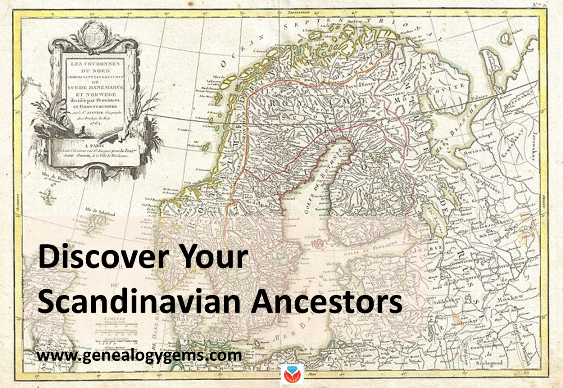
Netherlands – Population Registers, BMD
In May, MyHeritage published major new collections for the Netherlands. Among them are indexes to civil births, marriages and deaths, as well as church baptisms, marriages and burials. You’ll also find their new Netherlands, Population Registers, 1810-1936 index, with more than 16 million records from population registers across the Netherlands. “Records typically list name, birth date, birthplace, residence date, and residence place. Sometimes an individual’s age, occupation, and names of their parents or spouse is also included.”
TIP: Use the source information given to go to browse-only collections of register images at FamilySearch (free) or Ancestry.com (subscribers or library users).
Sweden – Marriage records
Over 6.5 million records are in the new Ancestry.com collection, Sweden, Indexed Marriage Records, 1860-1943. According to the collection description, “records in this database were created by Statistics Sweden (SCB), a government agency established in 1858 that extracted and transcribed birth, marriage, and death information from Evangelical Lutheran Church in Sweden parish record books from 1860 to 1941.” You will likely find the names (including maiden name), dates of birth, gender and number of marriage for the bride and groom, along with dates and place of marriage. Later records may add more details: occupation, residence, nationality, religion and previous marital status. TIP: See the collection description for an explanation of Swedish naming traditions.
FYI–Ancestry.com’s Sweden, Indexed Death Records, 1840-1942 has also been recently updated (it’s now got 12.5 million records).
England – Parish Registers
Findmypast.com has recently posted the following new and updated parish records:
- Devon: Over 450,000 records are estimated to be among the 4,500 handwritten volumes of Devon parish baptisms, marriages, and burials now browseable at Findmypast.
- Plymouth and West Devon: Over 900 browse-only volumes comprising three centuries of parish registers from Plymouth and West Devon.
- Nottinghamshire: Over 580,000 records have been added to the Nottinghamshire Baptisms Index (1538-1917), in which you may discover “when and where your ancestors were baptized as well as their parents’ names and father’s occupation.” See also updates to the marriages index (1528-1929), burials index (1596-1905) and a small but new banns index (1600-1812).
Israel – Military
The Israel State Archives has released a digital archive from the Six Day War. According to an article at Arutz Sheva, the collection numbers over 150,000 pages and includes “minutes of 36 meetings of the Ministerial Committee on National Security from January-July 1967, Cabinet protocols and documents pertaining to the war from various ministries (Prime Minister’s Office, Foreign Ministry, Interior Ministry, Religious Affairs Ministry, Tourism Ministry, Justice Ministry, Housing Ministry and others), as well as sound and video files, still photographs and materials from the personal archives of Levy Eshkol, Yaakov Herzog, Aviad Yafe, Moshe Sasson and Rabbi Shlomo Goren.” Click here for the Six Day War Collection on the Israel State Archives website.
United States – Miscellaneous
- Biographies of Famous People: You’ve likely seen late 19th-century U.S. county histories with biographical sketches of prominent residents (perhaps you’ve even found your family among them). A national version of these “mug books” has been published and indexed on Ancestry.com. Appletons’ Cyclopedia of American Biography, 1600-1889 includes over 15,000 entries from annual volumes 1887-1889, with entries from most states. “Much of the information found within was compiled by either the subjects themselves or by their families,” warns the collection description. “Not all of the biographies found within the Cyclopedia may be accurate….Since contributors to the project were paid by space, there is speculation that the authors of the false pieces may have been financially motivated to add fabricated entries.” As always, use what you find to inform and guide your research: verify everything you can.
- Red Cross: Nearly 20,000 newly scanned photographs from the American National Red Cross collection are now online at the Library of Congress website.
- WWII draft registrations: Fold3 has added 21 new states or regions to its collection of WWII Draft Registration Cards. Draft registration cards are an excellent resource for determining where your family lived after the 1940 census; employer information, which can lead to business records or help you identify a relative in a city directory; and more.
- Indian wills: Ancestry.com has a new collection of U.S., Indian Wills, 1910-1921. According to the collection description, for a time, “the Probate Divisions of the Bureau of Indian Affairs were responsible for determining the heirs of deceased Indian trust allottees. Ultimately, Native Americans submitted more than 2,500 pages of wills and probate records to the Bureau. These records span the period 1910 to 1921 and, with a few exceptions, pertain to Indian families living in the Plains and several western states. Researchers will find members of the following tribes represented in this collection: Chippewa, Sioux, Apache, Shawnee, Quapaw, Assinboin, Leach Lake Chippewa, Confederated Flathead, Ponca, Cheyenne, Crow, Sac & Fox, Nez Perce, Southern Ute, Omaha, Osage, and more.”
- Arkansas: The Arkansas State Archive Newspaper Digitization Project has now digitized and indexed over 200,000 pages that will appear on Newspapers.com in June. Click here to learn more about this project.
- Florida: Flagler College (St. Augustine, Florida) has digitized its archive of yearbooks and photos, articles, college catalogs, and more. Now available to the public online
- Georgia: Now on the Georgia Archives is a digital version of its Bible Records Microfilm Index. These are images of the “card catalog (compiled by Georgia Archives staff) of the Archives’ holdings of Bible records on microfilm. The cards have been scanned and saved in PDF format.”
Got Swedish roots?
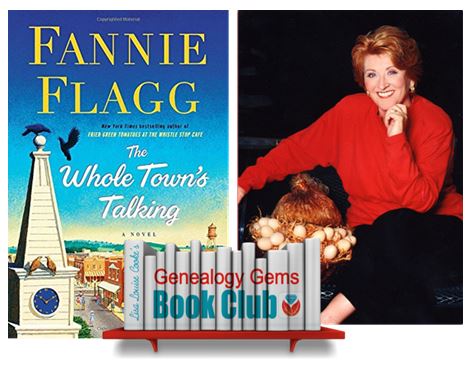 Then you’ll likely enjoy our current Genealogy Gems Book Club featured title, The Whole Town’s Talking by internationally-bestselling author Fannie Flagg. It’s the story of two Swedish-American immigrants to the U.S., who find each other and marry after the man places an ad in a newspaper. Their dairy farm becomes the core of Swede Town, which grows into a classic Midwestern town. This novel is the multi-generational story of that town. Click here to learn more about The Whole Town’s Talking and The Genealogy Gems Book Club.
Then you’ll likely enjoy our current Genealogy Gems Book Club featured title, The Whole Town’s Talking by internationally-bestselling author Fannie Flagg. It’s the story of two Swedish-American immigrants to the U.S., who find each other and marry after the man places an ad in a newspaper. Their dairy farm becomes the core of Swede Town, which grows into a classic Midwestern town. This novel is the multi-generational story of that town. Click here to learn more about The Whole Town’s Talking and The Genealogy Gems Book Club.
Old Cookbooks Are Among New Online Record Collections
Old cookbooks are among new recent online records collections. So are British newspapers, British Columbia estate files, New Zealand WWII appointments, UK Parliamentary returns, UK military indexes, US newspapers (Arkansas, Kansas, and New York) and church records for Sydney, Australia; Norfolk, England; and Stockholm, Sweden.
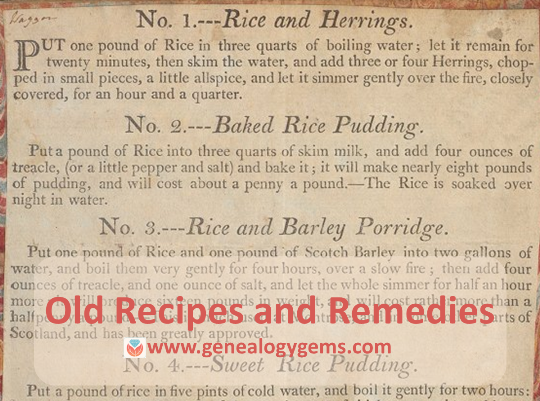
Featured New Records Online: Old Cookbooks and Home Remedies
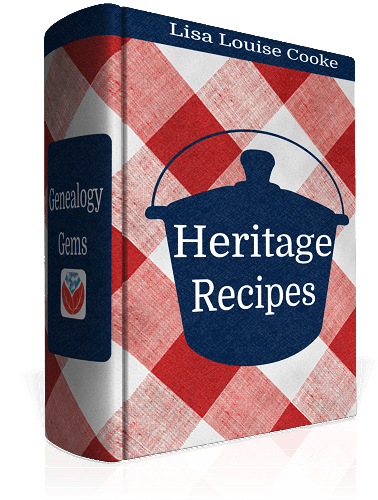 The US National Library of Medicine has “recently embarked on a project to digitize and make available” its collection of historical recipes and cookbooks, according to its blog. Old recipes (also called “receipts”) may give you a glimpse into what daily life was like for your ancestors. Among these are “recipes and advice for food preparation and preservation, animal husbandry, preparing useful household concoctions, and allopathic medicines and treatments for maintaining personal health.” Find these at the National Library of Medicine Digital Collections.
The US National Library of Medicine has “recently embarked on a project to digitize and make available” its collection of historical recipes and cookbooks, according to its blog. Old recipes (also called “receipts”) may give you a glimpse into what daily life was like for your ancestors. Among these are “recipes and advice for food preparation and preservation, animal husbandry, preparing useful household concoctions, and allopathic medicines and treatments for maintaining personal health.” Find these at the National Library of Medicine Digital Collections.
Love these? Click here to find more old recipes and classic cookbooks on the Genealogy Gems website.
Australia – New South Wales – Church records
Nearly 125 years of baptism, marriage, and burial registers for the city and parish of Saint Peter’s in the greater metropolitan area of Sydney, Australia (1839-1963) are now available on Ancestry.com. Baptismal registers may include the child’s name, birth and baptismal dates, parents’ names, abode and profession of parent(s) and officiant’s name. Marriage records may list for bride and groom the names, occupations, residences, ages and marital status, along with the date and place of the wedding, names of those giving consent (if required) and the officiant. Burial registers may mention the name of the deceased; death and burial dates; abode; age; “quality” or profession, and officiant.
Britain – Dougal’s Index Register
A Findmypast.com collection of Britain’s missing beneficiaries and unclaimed estates (1910) “contains over 500 records from Dougal’s Index Register to Next of Kin, Heirs at Law and Cases of Unclaimed Money Advertisements from 1910. The publication looks specifically at properties or estates registered in chancery court, which have gone unclaimed because a deceased person did not create a will or did not have any known descendants….The lists only provide an individual’s first and last name.”
Britain – Newspapers
Over 48,000 new articles and two brand new titles have been added to Findmypast’s collection of historic British newspapers. This month’s new titles are The Shipping & Mercantile Gazette and The Rutland Echo & Leicestershire Advertiser.
Canada – British Columbia
Findmypast.com subscribers may now browse among over 750,000 records of British Columbia Estate Files (1859-1949). According to the site, these “allow you to delve through probate estate files pertaining to the judicial districts of British Columbia; the County Court and the Supreme Court. Probate estate records are a valuable resource for family history research, providing vital details such as dates, names, and locations to help grow your family tree. Included in this collection is a probate index for the district of Vancouver, sorted alphabetically by last name.” Browsing tip: narrow results by year, document, court, and district.

Canada celebrated its 150th birthday in 2017! Click here to read tips for starting your Canadian research from Lisa Louise Cooke’s conversation with Library and Archives Canada staffer Claire Banton.
England – Norfolk parish records
Fifty-one volumes of Norfolk Archdeacon’s Transcripts (1600-1812) and 123 volumes of Bishop’s Transcripts (1687-1901) are now browseable at Findmypast.com. According to the site, the collections contain records of baptisms, marriages, and burials from across the county.
New Zealand – WWII
Fold3.com hosts a new collection of WWII Appointments, Promotions, Transfers and Resignations, extracted from the New Zealand Gazette. These give information such as name, rank, event date, and regiment for members of the New Zealand Expeditionary Forces (including army, air force, and navy).
Sweden – Stockholm
Nearly 175,000 indexed names and over 14,000 digital images were recently added to a free collection at FamilySearch.org: Sweden, Stockholm City Archives, Index to Church Records (1546-1927).
UK – Military
Ancestry.com has published a new collection of UK Military Indexes, 1920-1971. According to the site, “These lists comprise the names and service numbers of those who were discharged from the armed forces after 1920 and born before 1901. Details given for over 300,000 individuals found within this collection may include (where available): initial and surname, date of birth, their service, service number and Ministry of Defence reference number.”
UK – Parliamentary Returns
The UK Parliamentary Archive has “recently uploaded the Protestation Returns for Berkshire, Cornwall and Cumbria,” according to its blog. “The Protestation Returns are the closest thing we have to a census for England in 1641-1642. They originate in the scuffling between Parliament and Charles I just before Civil War engulfed the country. It was decided that all men over the age of 18 in England and Wales should swear an oath of allegiance to the Protestant religion, Parliament, and the King. Around one-third of the records for England survive.” A companion map allows users to search for these records by location.
US – Arkansas, Kansas, New York – Newspapers
Among new digitized newspaper collections at Newspapers.com are the following titles: The Frankfort Bee (Kansas, 1876-1898), The Southern Standard (Arkadelphia, Arkansas, 1878-1905), Arkansas Times and Advocate (Little Rock, 1837-1838), Cortland Register (Kansas, 1889-1924), The Frankfort Sentinel (Kansas, 1886-1892), The Marshall County Index (Frankfort, Kansas, 1905-1906), Epworth Advocate (Frankfort, Kansas, 1895-1896), Springville Journal (New York, 1867-1985) and The Ness County Pioneer (Sidney, Kansas, 1879-1880).
Are you listening to the free Genealogy Gems Podcast? This year Lisa Louise Cooke celebrates 10 years on the air. The show has more than 2.5 million downloads worldwide. Listen to hear for yourself her winning combination of technology tools, genealogy research strategies, inspiring stories–and tons of tips you can apply right away to your family history!

Disclosure: This article contains affiliate links and Genealogy Gems will be compensated if you make a purchase after clicking on these links (at no additional cost to you). Thank you for supporting Genealogy Gems!

